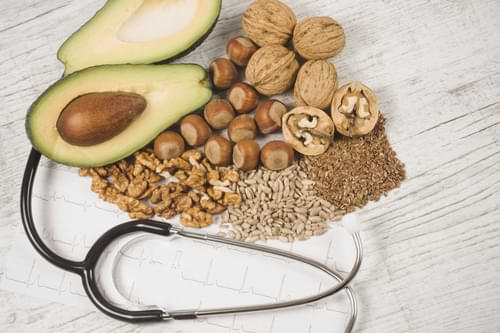Aging is an inevitable part of life, but how we age is heavily influenced by our lifestyle choices, particularly our diet. In recent years, the plant-based movement has gained momentum, with research showing that a vegan diet can play a significant role in supporting healthy aging and increasing longevity. With its emphasis on whole, nutrient-dense foods, a well-planned vegan diet can provide the essential nutrients needed to protect against age-related diseases, promote cellular health, and improve overall well-being. This article will explore the relationship between veganism and aging, highlighting how plant-based diets can support healthy aging and contribute to longevity.
The Science Behind Aging
Aging is a complex biological process characterized by the gradual decline in physical and mental function, as well as an increased risk of chronic diseases such as heart disease, diabetes, and cancer. While genetics play a role in how we age, lifestyle factors such as diet, exercise, and stress management can significantly influence the aging process.
One of the primary factors contributing to aging is oxidative stress. Over time, the body accumulates damage caused by free radicals—unstable molecules that can damage cells, proteins, and DNA. Antioxidants, which are abundant in plant-based foods, help neutralize these free radicals, reducing oxidative stress and protecting cells from damage.
Additionally, chronic inflammation has been linked to many age-related diseases. A diet high in anti-inflammatory foods, such as fruits, vegetables, nuts, and seeds, can help combat inflammation and reduce the risk of disease.
Benefits of a Vegan Diet for Aging
- Reduced Risk of Chronic Diseases
One of the most compelling reasons to adopt a vegan diet as we age is its potential to reduce the risk of chronic diseases that are commonly associated with aging. Studies have consistently shown that individuals who follow a plant-based diet have a lower risk of heart disease, type 2 diabetes, and certain cancers.
- Heart Disease: Cardiovascular disease is the leading cause of death among older adults. A diet rich in fruits, vegetables, whole grains, and legumes has been shown to lower cholesterol levels, reduce blood pressure, and improve heart health. Plant-based diets are typically low in saturated fats and cholesterol, which can contribute to atherosclerosis (hardening of the arteries) and heart disease.
- Type 2 Diabetes: As we age, the risk of developing type 2 diabetes increases. However, research has shown that a vegan diet can improve insulin sensitivity and reduce the risk of diabetes. Plant-based diets are high in fiber, which helps regulate blood sugar levels and improve metabolic health.
- Cancer: Certain plant compounds, such as antioxidants and phytochemicals, have been shown to have anti-cancer properties. A diet rich in fruits, vegetables, and whole grains can help protect against various forms of cancer, including colorectal, breast, and prostate cancer.
- Improved Cognitive Health
Cognitive decline is a common concern as we age, with conditions such as dementia and Alzheimer’s disease becoming more prevalent. However, research suggests that a plant-based diet can support brain health and reduce the risk of cognitive decline.
- Omega-3 Fatty Acids: While omega-3 fatty acids are often associated with fish, plant-based sources such as flaxseeds, chia seeds, and walnuts can provide these essential fats. Omega-3s are critical for brain function and have been shown to reduce inflammation and protect against cognitive decline.
- Antioxidants: Foods rich in antioxidants, such as berries, leafy greens, and nuts, can help protect the brain from oxidative stress and inflammation, both of which are linked to cognitive decline. These antioxidants help preserve brain cells and improve memory and cognitive function.
- B Vitamins: Vitamins B6, B12, and folate are essential for maintaining cognitive health. While B12 is typically found in animal products, fortified plant-based foods and supplements can provide adequate amounts. Ensuring sufficient intake of these vitamins can reduce the risk of cognitive decline and memory loss.
- Longevity and Life Expectancy
Several studies have linked plant-based diets with increased longevity. The Blue Zones—regions of the world where people live the longest—share common dietary patterns that are predominantly plant-based. These regions, including Okinawa in Japan, Sardinia in Italy, and Loma Linda in California, have higher-than-average life expectancies and lower rates of chronic disease.
- Caloric Density: Plant-based diets tend to be lower in calories but higher in nutrients, allowing individuals to maintain a healthy weight without excessive caloric intake. Maintaining a healthy weight is associated with a lower risk of chronic diseases and increased longevity.
- Telomere Length: Telomeres are protective caps at the ends of chromosomes that shorten as we age. Research has shown that diets rich in whole, plant-based foods can help preserve telomere length, which is associated with slower aging and increased longevity.
- Enhanced Physical Health and Mobility
Maintaining physical health and mobility is crucial for aging well. A vegan diet can help support muscle strength, bone health, and overall mobility as we age.
- Protein Sources: While some people believe that animal products are necessary for muscle maintenance, plant-based sources of protein, such as legumes, tofu, tempeh, and quinoa, can provide all the essential amino acids needed for muscle repair and growth. Regular consumption of plant-based protein can help preserve muscle mass and strength, reducing the risk of sarcopenia (age-related muscle loss).
- Bone Health: Contrary to popular belief, a vegan diet can support bone health. While calcium is commonly associated with dairy products, plant-based sources such as leafy greens, fortified plant milks, and tofu can provide adequate calcium for bone health. Additionally, a diet rich in fruits and vegetables can help maintain bone density and reduce the risk of osteoporosis.
- Anti-Inflammatory Properties: Chronic inflammation can contribute to joint pain and reduced mobility. A plant-based diet, rich in anti-inflammatory foods, can help alleviate joint pain and improve overall mobility, allowing individuals to stay active as they age.
Also check: The Environmental Impact of Veganism
Essential Nutrients for Healthy Aging on a Vegan Diet
While a well-planned vegan diet can provide most of the nutrients needed for healthy aging, it’s essential to pay attention to specific nutrients that are crucial for older adults. Below are some key nutrients and tips for ensuring adequate intake on a vegan diet:
- Vitamin B12
Vitamin B12 is essential for nerve function and the production of red blood cells. Since B12 is primarily found in animal products, vegans should consider fortified foods (such as plant-based milks and breakfast cereals) or supplements to ensure adequate intake. A deficiency in B12 can lead to fatigue, memory loss, and neurological problems, so it’s crucial to monitor B12 levels regularly.
- Calcium
Calcium is vital for maintaining bone health, especially as we age. While dairy is a common source of calcium, many plant-based foods are rich in calcium, including fortified plant milks, tofu, almonds, and leafy greens like kale and collard greens. Meeting the recommended daily intake of calcium can help reduce the risk of osteoporosis and bone fractures.
- Vitamin D
Vitamin D is important for calcium absorption and bone health. While sunlight is a natural source of vitamin D, older adults may have reduced skin synthesis of this vitamin, especially in colder climates or during the winter months. Vegan sources of vitamin D include fortified foods and supplements. Vitamin D is available in two forms: D2 (plant-based) and D3 (which can be plant-based or derived from animal sources). To ensure adequate intake, vegans should consider taking a vitamin D3 supplement derived from lichen.
- Omega-3 Fatty Acids
As mentioned earlier, omega-3 fatty acids are essential for brain and heart health. While fish is a common source of omega-3s, vegans can obtain these fatty acids from flaxseeds, chia seeds, walnuts, and algae-based supplements. Ensuring adequate intake of omega-3s can help reduce inflammation, support brain function, and promote heart health.
- Iron
Iron is crucial for maintaining energy levels and preventing anemia. While plant-based sources of iron, such as lentils, beans, and spinach, are abundant, the non-heme iron found in plants is not as easily absorbed by the body as the heme iron found in animal products. To enhance iron absorption, vegans should consume vitamin C-rich foods (such as citrus fruits, bell peppers, and tomatoes) alongside iron-rich foods.
- Zinc
Zinc is important for immune function, wound healing, and cell division. While zinc is found in many plant-based foods, including legumes, nuts, seeds, and whole grains, the absorption of zinc from plant sources can be lower due to phytates (compounds found in plants that can inhibit absorption). To ensure adequate zinc intake, vegans should consume a variety of zinc-rich foods and consider a supplement if necessary.
Also check: Transitioning to Veganism
Practical Tips for Aging Well on a Vegan Diet
- Eat a Variety of Foods: To ensure you’re getting all the necessary nutrients, aim to eat a wide variety of fruits, vegetables, whole grains, legumes, nuts, and seeds. Each food group provides different vitamins, minerals, and antioxidants that support overall health.
- Stay Hydrated: As we age, the body’s ability to sense thirst diminishes, making it essential to stay hydrated. Drink plenty of water throughout the day, and include hydrating foods such as cucumbers, watermelon, and leafy greens in your diet.
- Monitor Nutrient Levels: Regular blood tests can help monitor levels of key nutrients such as vitamin B12, vitamin D, and iron. If necessary, supplements can be used to address deficiencies and ensure optimal health.
- Incorporate Physical Activity: Regular exercise is crucial for maintaining muscle strength, mobility, and overall physical health as we age. A combination of aerobic exercise, strength training, and flexibility exercises can help support cardiovascular health, preserve muscle mass, and enhance joint mobility. Activities such as walking, swimming, yoga, and resistance training are excellent options for older adults. Exercise also promotes mental well-being, reducing the risk of depression and cognitive decline.
- Plan Balanced Meals: It’s important to ensure that your meals are well-balanced and nutrient-dense. A simple way to do this is by following the “plate method.” Aim to fill half your plate with fruits and vegetables, one-quarter with whole grains, and the remaining quarter with plant-based protein sources like legumes, tofu, or tempeh. Don’t forget to include healthy fats, such as avocados, nuts, and seeds, which are essential for brain health and hormone regulation.
- Consider Fortified Foods: Fortified foods can be a valuable addition to a vegan diet, especially for nutrients that may be more challenging to obtain from plant-based sources. Fortified plant milks, cereals, and nutritional yeast can provide essential vitamins and minerals like vitamin B12, calcium, vitamin D, and iron.
- Manage Stress: Chronic stress can accelerate the aging process and increase the risk of age-related diseases. Mindful eating practices, meditation, deep breathing exercises, and regular physical activity can help reduce stress levels. Taking time for self-care and relaxation is essential for mental and emotional well-being, especially as we age.
Also check: How to Get All the Nutrients You Need
Real-Life Success Stories: How a Vegan Diet Has Supported Aging
Countless individuals have embraced veganism and experienced profound benefits related to aging, longevity, and overall well-being. Here are a few inspiring real-life examples of how plant-based diets have supported healthy aging:
- Ruth Heidrich: At 85 years old, Ruth Heidrich is a six-time Ironman triathlete, cancer survivor, and advocate for plant-based diets. After being diagnosed with breast cancer at the age of 47, Ruth adopted a vegan diet and successfully completed numerous athletic feats. She credits her plant-based lifestyle for her energy, vitality, and disease-free life well into her 80s.
- Dr. Ellsworth Wareham: Dr. Ellsworth Wareham, a retired cardiothoracic surgeon and one of the world’s oldest known vegans, lived to be over 100 years old. Dr. Wareham attributed his longevity and excellent health to his plant-based diet, which he adopted in his 50s. Even in his later years, he remained active, mentally sharp, and free from chronic diseases.
- Mimi Kirk: At 82, Mimi Kirk is a raw vegan chef and author who exudes vitality and youthfulness. She transitioned to a raw vegan diet in her 60s after facing health challenges, including arthritis and high blood pressure. Since making the switch, Mimi has experienced improved energy, clearer skin, and greater overall health. She is a testament to the power of a plant-based lifestyle in promoting healthy aging.
Common Myths About Veganism and Aging
Despite the growing body of evidence supporting the benefits of veganism for healthy aging, several myths persist. Let’s debunk some of the most common misconceptions:
- Myth: Vegans Don’t Get Enough Protein for Muscle Maintenance
- Fact: Plant-based protein sources such as lentils, beans, tofu, tempeh, quinoa, and seitan provide all the essential amino acids needed for muscle maintenance and repair. When consumed in adequate amounts, these protein-rich foods support muscle strength and prevent age-related muscle loss.
- Myth: A Vegan Diet Lacks Calcium for Strong Bones
- Fact: There are plenty of plant-based sources of calcium, including fortified plant milks, tofu, almonds, and leafy greens like kale and collard greens. Regular consumption of these foods, along with sufficient vitamin D, can help maintain bone health and prevent osteoporosis.
- Myth: Vegans Are More Prone to Cognitive Decline
- Fact: On the contrary, a well-balanced vegan diet that includes brain-supporting nutrients such as omega-3 fatty acids, B vitamins, and antioxidants can protect against cognitive decline and improve brain function. Including foods like walnuts, flaxseeds, and leafy greens can enhance brain health and reduce the risk of dementia and Alzheimer’s disease.
- Myth: Vegans Struggle to Get Enough Energy in Old Age
- Fact: A nutrient-dense plant-based diet can provide all the energy older adults need to thrive. Complex carbohydrates from whole grains, fruits, and vegetables supply steady energy throughout the day, while healthy fats and protein support sustained energy levels.
Veganism and Longevity: A Global Perspective
The connection between veganism and longevity is evident in several cultures and regions around the world where plant-based diets are the norm. These areas, often referred to as “Blue Zones,” are known for their high concentrations of centenarians (people who live to be 100 or older) and low rates of chronic diseases. Common dietary patterns in these regions emphasize plant-based foods and minimal animal products. Let’s take a closer look at some Blue Zones:
- Okinawa, Japan: The Okinawan diet is predominantly plant-based, with an emphasis on sweet potatoes, soy-based products (such as tofu and miso), and a variety of vegetables. Okinawans have some of the longest life expectancies in the world, and their diet is credited with reducing the risk of heart disease, cancer, and cognitive decline.
- Sardinia, Italy: In Sardinia, the diet is rich in whole grains, legumes, fruits, and vegetables, with minimal consumption of animal products. Sardinians enjoy a long lifespan and low rates of chronic diseases, thanks in part to their plant-based diet and active lifestyle.
- Loma Linda, California: Loma Linda is home to a community of Seventh-day Adventists, many of whom follow a plant-based diet. This group has a significantly higher life expectancy compared to the general U.S. population, with lower rates of heart disease, cancer, and diabetes.
Veganism as a Pathway to Healthy Aging and Longevity
A plant-based diet offers a multitude of benefits that support healthy aging and longevity. From reducing the risk of chronic diseases to enhancing cognitive function and preserving physical health, veganism can be a powerful tool in promoting a longer, healthier life. By focusing on whole, nutrient-dense foods and ensuring adequate intake of essential nutrients, individuals can age gracefully and maintain vitality well into their golden years.
As the body of research continues to grow, it’s becoming increasingly clear that the power of plants extends far beyond the plate. Whether you’re already following a vegan lifestyle or considering making the transition, embracing plant-based eating can be a key component in the journey toward healthy aging and increased longevity.






